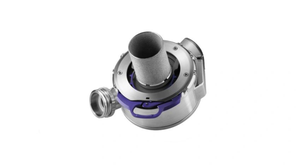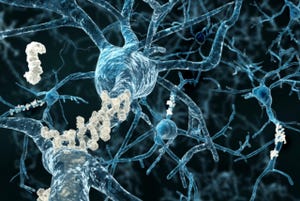This year's featured leaders illustrate medtech's ability to adapt and thrive in an ever-changing business environment.
September 1, 2008
BUSINESS PLANNING & TECHNOLOGY DEVELOPMENT
Return to article: |
The InMotion Musculoskeletal Institute is a nonprofit, private orthopedic laboratory located in Memphis. The institute's mission is to improve mobility and reduce disability for the musculoskeletal patient through translational research. Founded in 2005, InMotion now houses three laboratories.
|
(click to enlarge) |
Working in these labs and providing their expertise are InMotion's 19 scientific professionals, including four PhDs, an MD, and an MD/PhD, along with three RN-level clinical researchers. InMotion has recruited these professionals through a number of mechanisms, including groundbreaking joint appointments with departments in local universities such as the University of Memphis department of biomedical engineering and the University of Tennessee Health Science Center department of orthopedic surgery–Campbell Clinic.
The InMotion biologics/biomaterials laboratory has established a foundation in local delivery of drug treatments for disease and injury in bone and connective tissues, including bone metastases and tendinopathy. This laboratory also has expertise in preclinical research, bone regeneration, fracture healing, histology, and micro-CT scanning.
|
(click to enlarge) |
The InMotion biomechanics laboratory has developed expertise in biomechanical testing of bones and implants as well as validated computer stress analysis models to provide insight into orthopedic reconstructive and trauma surgery. Also, the Institute has installed capabilities in radiostereometric analyses, which will provide unique research and clinical perspective into the micromovement of implants after bony reconstruction procedures.
A third capability includes kinematic modeling, a tool that will enable surgeons to see the movement of installed implants in real time during the course of a surgery to get a nuanced view of joint movement before and after surgery. Finally, InMotion is adding clinical expertise in computer-assisted surgery and performance outcome measures.
The InMotion clinical research team partners with industry on sponsored projects by enrolling patients from the Regional Medical Center at Memphis and by performing follow-ups of those patients on a regular basis. A major accomplishment in the clinical research group is the creation of a patient registry that InMotion will use to collect data about musculoskeletal trauma patients. Over time, this registry will provide insights into treatments for catastrophic musculoskeletal trauma.
Personnel from these three laboratories interact daily, creating complementary research programs that quicken the path that basic discoveries take for new and improved treatments involving patients suffering musculoskeletal disease.—Richard R. Tarr, president and executive director, InMotion Musculoskeletal Institute
Copyright ©2008 MX
About the Author(s)
You May Also Like




